Why our coffee is the best?
OMB is powered by CHD and passionate about coffee. We import from all around the world sourcing premium quality coffee beans. OMB roasts 4 days a week, so our coffee is the freshest when shipped.
All of our coffee is "specialty grade" and has been given the highest grade of coffee by a certified coffee taster (SCAA).
What is the difference between Specialty vs Commercial Coffee?
Commercial coffee is usually roasted and packed in large plants, under nationally advertised brand names.
Specialty coffee is usually roasted in small stores, using traditional methods and technology, and is sold where it has been roasted.
Check out our section on "Bean Facts" because it's all about quality beans.
What is our mission?
Giving back to families impacted by Congenital Heart Defects.
What is One More Brew Coffee Company?
In 2007, our son was born with a congenital heart defect. While working through those uncertain times, the idea behind OMB evolved. OMB is an inspired manifestation asking the universe for "One More Beat". It creates positivity, and hope, and kept us fighting for our son and children like him. I have always wanted to open a café. That conversation evolved into........"How can we sell coffee and help families like ours who are impacted by Congenital Heart Defects?" Since OMB has a special place in our hearts “One More Brew” was created.
What is the significance behind the coffee names?
THATCHER (French Dark Roast) is dedicated to our son who inspires us each and every day and keeps us fighting for One More Beat. Dr. John A HAWKINS, MD (Medium Roast) is named after the skilled surgeon that operated on our son at seven months old. Dr. Melanie EVERITT, MD (Light Roast) is named after the pediatric cardiologist that took over our sons care at two days old. HERO (Decaf Roast) is named after the elite group we belong to that continues to deal with congenital heart defects and the trials and tribulations that come with it.
How does the roasting process affect its caffeine content?
How coffee beans are roasted will impact the caffeine level, because the longer the bean is roasted the more caffeine burns off. Therefore, darker roasts usually have less caffeine than lighter roast.
What does dark roast mean?
Dark roasts are full of body and texture. During the roasting process the coffee's origin of flavors develop a rich and sweet shape. Also, dark roasts have less acidity then lighter roasts.
What does light roast mean?
Light roasts tend to perserve more of their flavors of origin and natural qualities. Basically, the lighter the roast the more involved flavor.
Do you have an espresso roast?
All of our coffees are suitable for a delicious espresso. However, bean grinds should be finer than table salt in order to be used for expresso.
What is the shelf life of OMB coffee?
All of our coffee is roasted and shipped fresh so we recommend brewing our coffee within four weeks of receiving your order. Please keep in mind once the sealed bag is opened oxidation begins and will get less flavorable the longer you keep it. However, coffee won't spoil or become unsafe to brew.
How should I store coffee?
We recommend you store coffee in an airtight container at room temperature, in a dark, dry, and cool location. DO NOT store in the fridge or freezer. Since there are a variety of odors that can influence the coffee this may compromise the aroma and flavor.
How are coffee beans graded?
Grade 1: Specialty Grade Coffee Beans.
This is the highest grade of beans, and to be classified as Grade 1 Coffee, the beans need to have no primary defects and 0-3 full defects, with a maximum of 5% above and below the specified screen size. These beans need to have zero of what is referred to as “Quakers” which are unripe or poorly roasted beans.
Grade 2: Premium Grade Coffee Beans
The second highest grade, and the one you most often would be drinking, these beans are the same as Grade 1 coffee beans, but are allowed a maximum of 3 Quakers and 0-8 defects.
Grade 3: Exchange Grade Coffee Beans
These beans will have 50% above screen 15 and 5% below it, with a maximum of 5 quakers, free from faults, but between 9-23 full defects are permissible. Supermarket brands typically use these beans to keep costs low.
Grade 4: Standard Grade Coffee Beans
These will have 24 to 86 full defects per 300g.
Grade 5: Off Grade Coffee Beans
They have more than 86 full defects per 300g.
